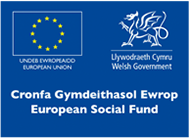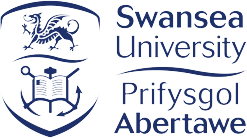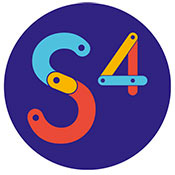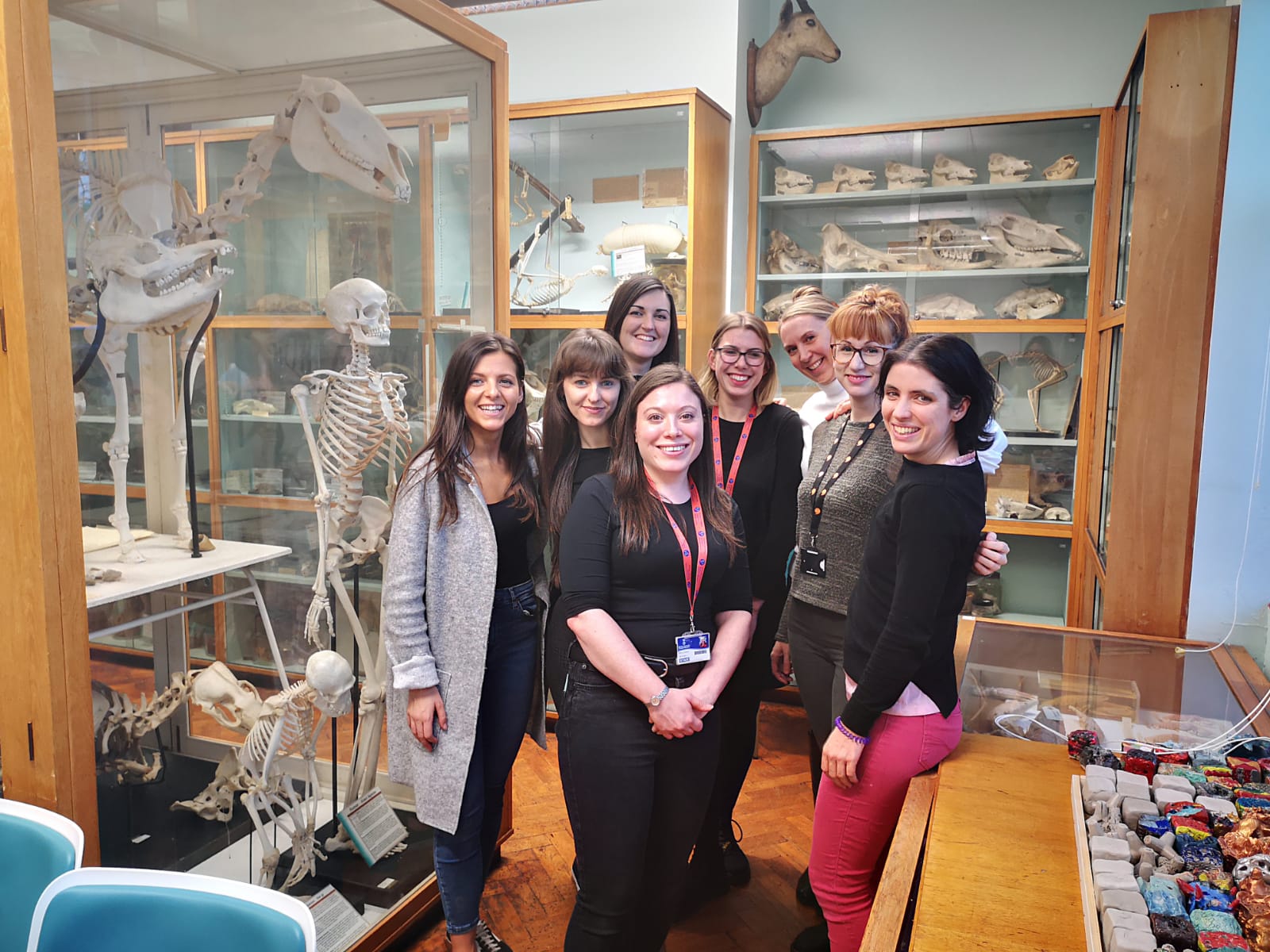A Swansea University scheme to increase the number of students choosing triple science GCSE, has received a major grant from the Welsh Government and the European Union.
The Swansea University Science for Schools Scheme (S4) is launching its next phase under the Trio Sci Cymru consortium, an £8.2-million pan-Wales science education partnership between Swansea, Cardiff, Bangor and Aberystwyth Universities, the Welsh Government and the Institute of Physics in Wales. Trio Sci Cymru is supported by a total of £5.7 million from the European Social Fund through the Welsh Government, and a further £2.5m from the Welsh Government’s National Science Academy with an investment of £2 million coming to Swansea University’s S4 project.
S4 Science Workshop Programme
The investment brings a new element to Swansea University’s science engagement activities with 11-19 year olds. S4’s team of scientists and outreach tutors will deliver custom-designed science workshops in a new outreach centre at the Singleton campus. The primary aims of S4 are to encourage students to continue their science learning and to consider science-related careers. The project is also undertaking a three-year educational research study to better understand why pupils from poorer backgrounds are less likely to take science subjects and go to university. Pupil visits to the University will also give a positive introduction to campus life to those from families which may not have experience of attending universities, or who feel that university is not for them.
S4 focuses on nurturing curiosity for science and discovery through fun, hands on, interactive workshops. The pupil experience will include:
- interactive science experiments which follow the school curriculum,
- inquiry-based activities demonstrating how science surrounds us,
- road-shows and exhibitions,
- science demonstrations and talks from new S4 team member BBC wildlife broadcaster Lizzie Daly.
S4’s Professor Mary Gagen from the University’s College of Science said: “S4 workshops explore the science in our daily lives, from the phones in our hands to the medicine we take when we’re poorly. Our workshops include everything from learning about how telescopes are used to hunt for Earth-like planets outside our solar system, to discovering how bees are essential to our species’ survival. We encourage young people to embrace a love of science and to take science subjects in school, and we boost their ability to excel when they do.”
Starting young
The S4 project recognises the importance of building a relationship with higher education from a young age – and begins its programme with pupils from the age of 11. This outreach is particularly vital for pupils with no family history of higher education, as it can help to support, nurture and grow young people’s ambitions for their future education.
At its heart, S4 and the Trio Sci Cymru partnership are about supporting ‘science for all’ as part of the University’s civic responsibility and Wales’ commitment to future generations.
Registrar and Chief Operating Officer, Andrew Rhodes said: “Increasing science skills and qualifications can bring important economic and societal benefits to Wales. Science training, and science literacy, empowers young people by widening access to both science and non-science employment opportunities, and ultimately improving the life chances of future generations.”
S4’s Associate Professor of Physics Will Bryan explains: “Science festivals, museums and centres offer some fantastic hands-on opportunities, however, what makes S4 different is that we work with the same group of students over three years, giving a far greater scope for structured learning. With our partner schools we are tailoring workshops to take hands-on examples of science research into young people’s lives, and in doing so we hope to learn about what drives young people’s attitudes to science and help them feel that science is there for them, if they want it. In a nutshell, we need to inspire the next generation of creative thinkers to make sure they can have an input into contemporary science research.”
“S4 started in 2012 and has gone from strength to strength. We’re extremely proud that some of the participants of our early activities have gone on to study science subjects at University, including one individual who attended our Science Circus event and who is now completing a PhD in Physics at Swansea.”
BBC wildlife presenter Lizzie Daly will be joining the S4 project as a Teaching and Outreach Fellow in the College of Science, delivering talks and lectures as part of the new programme.
On joining the team, Lizzie Daly explains: I’m absolutely delighted to be joining Swansea University’s College of Science and the S4 project. It’s important for Universities and science broadcasters like me to work together more as we aim to reach out to wider audiences about science and the natural world. I will be using my background, as both a wildlife biologist and a broadcaster, to find ways to reach more people, from whatever walk of life, about science, the natural world, the conservation issues our planet is facing and how we manage our relationship with wildlife for the future. Wales is home to some of the largest sea bird colonies, and the most diverse ecosystems and vital marine habitats in the UK. It has over 870 miles of incredible coastline and Swansea University’s two campuses are right on the beach! I’m excited to start working with S4 on the natural science component of the programme. We will be getting students out, exploring the wonderful Welsh coastline to connect with the incredible wildlife right here on our doorstep. I am very proud to be collaborating with Swansea University to inspire, educate and make positive change to our natural world.”
Professor Gagen said: “This programme is about trying to encourage every young person in Wales, from whatever background or walk of life, to see science as something relevant to their life and a possibility for their future.
“Universities are big communities made up of many kinds of people and increasingly a really important part of that community are those who help us throw the gates open on research and tell people what goes on here – artists, broadcasters and writers. I think we’re going to see more and more creative people joining our universities as we learn to better translate scientific knowledge for the wider public. We’re really excited to have Lizzie, as a scientist and broadcaster, joining our community”.
As its very first event under the new scheme S4 welcomed Year 3 and Year 5 pupils from Blaenhonddan Primary School to the Bay campus on Thursday. Pupils took part in workshops about reducing plastic pollution, exploring issues around sustainability in the clothing industry and met the university’s Bloodhound supersonic car team to learn all about the engineering and science behind the car’s design.
Blaenhonddan teacher Mr Matthew Owens said “We had an absolutely fantastic day – the children have been engaged and enthused so much by the workshops. The staff were brilliant and there were lots of happy, smiling faces from the children. We’re looking forward to more visits to Swansea University to encourage our students in their science learning”.




